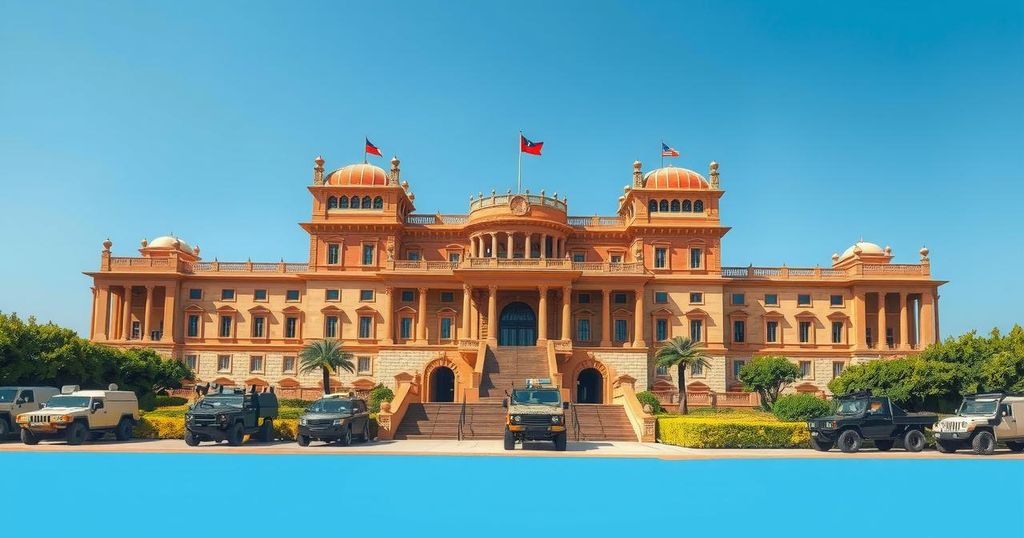Sudanese Army Regains Control of Presidential Palace Amidst Ongoing Conflict
Sudan’s military has taken control of the presidential palace in Khartoum from the RSF, marking a significant victory in an ongoing two-year conflict. Despite this, the RSF retains territory outside the capital. The war has resulted in a humanitarian crisis, with over 28,000 casualties and widespread displacement. Allegations of human rights abuses emanate from both factions, amid calls for international intervention.
On Friday, the Sudanese military announced that it had regained control of the presidential palace in Khartoum from the paramilitary Rapid Support Forces (RSF). This strategic recapture marks a significant development in a two-year conflict that threatens to further destabilize the country. The military’s success follows nearly two years of intense fighting, positioning them as the dominant force within the capital.
The military confirmed their control over the Republican Palace through social media videos, showcasing soldiers celebrating the victory on the 21st day of Ramadan. In the videos, Sudanese military personnel inside the compound reported their presence, amidst substantial damage visible in the building. Soldiers armed with assault weapons and rocket launchers were seen chanting, “God is the greatest!”
The fall of the Republican Palace, once the government’s seat of power, symbolizes another territorial gain for Sudan’s army under the leadership of General Abdel-Fattah Burhan. This event signifies the displacement of the RSF, led by General Mohammed Hamdan Dagalo, from Khartoum, intensifying the conflict that ignited in April 2023.
While the RSF has not officially commented on their loss, it is unlikely to curtail the ongoing hostilities, as they retain control over regions outside the capital. The United Nations has expressed concern that this conflict has resulted in what it describes as the world’s most severe humanitarian crisis. To date, the war has claimed the lives of over 28,000 individuals and displaced millions.
The Republican Palace has historical significance, having served as a power center during both British colonial rule and the early years of Sudanese independence in 1956. Despite the military focusing attacks on the palace in their ongoing campaign, the complex’s rich history is juxtaposed with the current turmoil.
Sudan remains embroiled in instability following the ousting of longstanding President Omar al-Bashir in 2019. Subsequent attempts at democratic governance collapsed following a military coup led by Burhan and Dagalo in 2021, prompting further armed conflict between the military and RSF.
Despite recent military advancements and retaking key locations, including a refinery north of Khartoum, the actions of both the military and RSF have raised serious concerns regarding human rights violations. The U.S. State Department previously labeled the RSF’s actions as genocidal, accusations both factions have denied amidst the ongoing strife.
The Sudanese military’s recent seizure of the presidential palace in Khartoum signifies a pivotal moment in the ongoing conflict, highlighting the escalating violence and humanitarian crisis in the region. While the RSF remains a significant force outside the capital, the military’s continued gains reflect a troubling historical narrative of power struggles in Sudan. Ongoing allegations of human rights violations by both parties exacerbate the dire humanitarian situation, underscoring the urgent need for international intervention to alleviate the suffering of civilians affected by this protracted conflict.
Original Source: www.france24.com




Post Comment